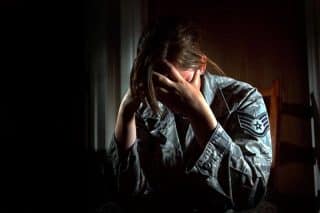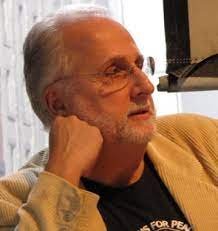
How we characterize the injuries sustained by veterans in war is crucial both to our understanding of the war experience and to the healing process. I have argued elsewhere that to ignore, trivialize or subsume the whole of the veterans’ readjustment difficulties under the post-traumatic stress disorder (PTSD) umbrella as mental illness is misguided and fails to address the spectrum of veterans’ injuries and needs. Consequently, for purposes of clarity and accuracy, I have referred to the totality of the “invisible wounds” presented by returning veterans as the “Psychological, Emotional and Moral (PEM) Injuries of War.”[1]
Despite the many voices (including my own) that have brought attention to the prevalence and severity of moral injury,[2] the traditional psychiatric community and Veterans Administration (VA) has long delayed recognizing and accepting the relevance of morality to the readjustment difficulties experienced by members of the military and veterans.[3] To adequately and effectively treat returning soldiers,[4] we must first accept the reality and severity of PEM injuries and then go beyond PTSD, beyond the idea that all combat injuries are either physical or trauma related.
Moral Injury
Whether by nature or nurture, humankind has identified and internalized a set of values and norms that provide the parameters of our being – what I have termed our “moral identity.” That is, these moral values and norms influence – if not dictate – how we define ourselves as persons, structure our world and render our relationship to it and to other human beings comprehensible. Consequently, we now have the need and the means to weigh concrete situations to determine acceptable (right) and unacceptable (wrong) behavior. Whether we act rightly or wrongly – that is, whether we act according to or in violation of our moral identity – will affect whether we perceive ourselves as true to our personal convictions and to others who share our values and ideals.
Morality is clinically relevant to veteran healing because combat behavior – displacing civilians, torturing, injuring and killing other human beings – is in conflict with the soldier’s moral foundations. Consequently, participation in war negatively impacts self-esteem, self-image and moral integrity precipitating debilitating remorse, guilt, shame, disorientation and alienation from the remainder of the moral community. This is moral injury.
Though the military has given lip service to the prevalence, severity and debilitating effects of PEM injuries (specifically PTSD) and the importance of screening and treating veterans for its occurrence, given the military’s culture of physical and mental toughness, these invisible wounds of war are rarely taken seriously, are ignored completely or are stigmatized as mental illness.[5] Further, as noted above, until rather recently, the mainstream therapeutic community, military and civilian, have neither recognized nor adequately addressed the prevalence and severity of moral injury. Tragically, military mental health professionals understand implicitly if not explicitly, that their function is to “cure” the soldier quickly, or, more likely, to mask his or her symptoms with medication and return the veteran to the fighting.
Some Suggestions for Healing
An important first step in the treatment of PEM injuries is to create an environment in which members of the military and veterans can feel comfortable seeking treatment, assured both that their injuries will be taken seriously and that they will be treated with dignity and respect. Since PEM injuries are the direct consequence of war fighting, they are as much combat injuries as a battlefield bullet wound or shrapnel-broken tibia.[6] To say otherwise betrays either an effort to disenfranchise the PEM injured or an ignorance of the nature, prevalence and severity of such injuries. Consequently, PEM injured veterans must be recognized as combat-wounded and therefore eligible to be awarded the Purple Heart Medal. To do so would send the message to veterans and members of the military community that PEM injuries are real and “legitimate” wounds of war and not a source of shame, weakness and embarrassment.[7] Most importantly, it will encourage them to recognize, accept, and seek treatment for their injuries.
If the appreciation and gratitude often expressed by politicians and citizens to members of the military and veterans is more than mere rhetoric[8]; if this nation sincerely intends to fulfill its contractual obligation to those who served and sacrificed so much; if the injuries of veterans are to be taken seriously and their needs met; the military and the Veterans Administration must go beyond lip service and pretense and implement a comprehensive and holistic treatment program that addresses the full spectrum of PEM injuries. As trauma remains a critical aspect of the war experience, such a protocol would include (but not end with) traditional and nontraditional clinical interventions for traumatic stress.[9]
Foundational to all moral injuries are issues of meaning, value and of personal, ideological and moral conflict precipitated by the veteran’s experiences in war. As late adolescents and young adults were psychologically, emotionally and morally manipulated – conditioned – to kill through a sophisticated indoctrination process (boot camp, basic training), returning warriors must be deprogrammed, that is, prepared to reintegrate into a non-martial environment. Veterans require re-education – a reverse boot camp, so to speak – to replace warrior values and behaviors with values and behaviors appropriate to the environment into which they are to reintegrate. This process is intended to shore up their moral identities and verify that this period of horror – their war experiences – was a moral aberration, that the cruelty and brutality of the battlefield damages character, undermines one’s ethical foundations and moral integrity and distorts one’s perception of correct behavior.
Once the moral uniqueness of the battlefield is understood, veterans are better prepared to discuss and analyze, together with others who have shared the experience, the actions, feelings and memories they have thus far tried, unsuccessfully, to forget, ignore or mask with drugs and alcohol. This process of introspection and self-examination, what I term “sorting out and placing in perspective,” allows veterans to re-examine their behavior in combat, enabling them to better evaluate and assess, realistically and honestly, their personal responsibility for their actions or omissions during war. In doing so, veterans may consider whether their behavior in combat, though not morally justifiable, may, given the nature of war, be understandable, perhaps even excusable, and their culpability mitigated by the fact that those who determined policy, sent them into harm’s way, issued the orders and allowed the war to occur and continue unchallenged must share responsibility for the crimes and horror that inevitably characterize war.
After all is said and done, however, veterans must accept some measure of personal responsibility for their decisions and actions on the battlefield and realize that guilt and shame may be warranted. For healing to occur, self-forgiveness and/or absolution for their moral and legal transgressions may be necessary, whether through religious ritual (confession, sweat lodge, etc.) or community service (volunteering at soup kitchens, homeless shelters, hospitals, etc.). As veterans achieve a better understanding of the nature and reality of war and how it has been mythologized, they may realize the importance of activism and its benefit to healing.[10] By speaking out, exposing Warist’s lies and holding them accountable, veterans are demonstrating true patriotism by acting in the national interest. By educating the public about the truth of war and bringing attention to its cost in lives and treasure, veterans are acting in behalf of the well being and dignity of their comrades, and for the betterment of humankind. By becoming activists, many veterans can (and have) found the renewal, absolution and penance they so desperately need to forgive themselves and find meaning in their lives. While the past can never be undone, nor the dead be made to live again, such acts of atonement may allow veterans, if not to assuage their guilt and shame, at least to begin the process of restoring their integrity, moral cohesion, self-esteem and perception of self. As healing progresses, the veterans’ relationship to their world and to other human beings become intelligible, lessening or ending their alienation and isolation from the remainder of the moral community.
Conclusion
What has become apparent over many years and many wars is that remaining silent about the experience is neither curative nor patriotic, contrary to what Warists would have us believe. Nor is the nation’s obligation to its veterans satisfied by an expression of appreciation and thanks. For healing to occur, trauma, guilt and shame must not remain static – the veterans’ personal and private burden. Rather, trauma and moral pain must be communalized – that is, unpacked, examined and discussed with others who understand and/or shared the experience.
Given the moral enormity and gravity of the war experience, the journey to healing, to achieving some sense of normalcy, is long and difficult. It is not uncommon for PEM injuries to persist and fester. The hope is, of course, that with hard work, courage, guidance and encouragement, a comprehensive, integrated and holistic treatment protocol will provide the means and the opportunity for a veteran not to put the war behind her and go on with her life as she has been naively advised on many occasions – war can never be forgotten – but, more realistically, to find meaning in and acceptance of the experience and, ultimately, a place for it in her being.
Endnotes:
1. For a detailed discussion of PEM Injuries, especially moral injury and treatment suggestions, see my book Beyond PTSD: The Moral Casualties of War, Gnosis Press, New York, 2016.
2. See among others, Peter Marin’s Living in Moral Pain, “Psychology Today,” November 1981; Robert Jay Lifton’s, Home From the War, Basic Books, 1973; and my The Moral Casualties of War: Understanding the Experience, “International Journal Of Applied Philosophy,” vol 13:1, Spring 1999.
3. Henceforth I will refer to all who have been members of the military as “veterans” whether they have already been discharged or remain on active duty.
4. I will use the generic term “soldier” to refer to all members of the military regardless of branch of service or gender.
5. Beyond PTSD: The Moral Casualties of War, pp. 23-31.
6. The intent of all combat action is to neutralize the enemies’ ability to wage war. The primary means of accomplishing this end in war fighting is by creating enemy casualties, i.e., by rendering the enemy incapable of continuing the hostilities. As was illustrated during the endless artillery bombardment experienced by soldiers fighting in the trenches of the Western Front during World War I, this includes not only killing and physically injuring enemy combatants, but psychologically and emotionally incapacitating them as well (then termed “shell shock”).
7. Ibid, pp. 150-167.
8. See my book, Worthy of Gratitude: Why Veterans May Not Want To Be Thanked For Their Service in War, Gnosis Press, New York, 2015.
9. Beyond PTSD: The Moral Casualties of War, pp. 96-101.
10. Ibid, pp.103-113.

Camillo “Mac” Bica, Ph.D., is a professor of philosophy at the School of Visual Arts in New York City. He is a former Marine Corps Officer, Vietnam Veteran, a long-time activist for peace and justice, and the Coordinator of the Long Island Chapter of Veterans for Peace.
His philosophical focus is in Social and Political Philosophy and Ethics, particularly the relation between war, morality, and healing. Bica’s books include “There are no Flowers in a War Zone: The Memories, Nightmares, and Flashbacks of a Vietnam War Survivor;” Beyond PTSD: The Moral Casualties of War,;” (Gnosis Press, 2015) and “Worthy of Gratitude: Why Veterans May Not Want to be Thanked for Their “Service” in War” (Gnosis Press, 2015). Articles by Dr. Bica have appeared in numerous philosophical journals and online alternative news sites.
ATTENTION READERS
We See The World From All Sides and Want YOU To Be Fully InformedIn fact, intentional disinformation is a disgraceful scourge in media today. So to assuage any possible errant incorrect information posted herein, we strongly encourage you to seek corroboration from other non-VT sources before forming an educated opinion.
About VT - Policies & Disclosures - Comment Policy




Comments are closed.